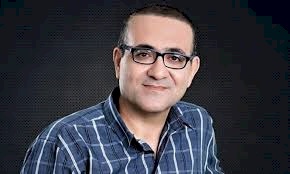
Follow-Up Committee: Morality is the Solution
The upcoming elections for the presidency of the "Follow-Up Committee" are leading headlines and discussions in the media and social media, which is fundamentally a good thing. The Arab community inside is still catching its breath from the horrors of the war in Gaza, and what remains of its breath is stifled and cut off under the burden of political intimidation and the rampant muzzling policy waged by the state's branches alongside right-wing "militias" of Israeli volunteers who aim to "teach Arabs a lesson".
Therefore, the legitimate political discussion surrounding the election of a new president for the "Follow-Up Committee" is an opportunity to refocus on our political and societal status inside, which has deviated in recent years and has become concentrated in the exacerbation of organized crime scenes and the escalating animosity of the state. In my opinion, it is worth addressing this matter in light of the following observations:
1. Despite all the legitimate and valid criticisms that can be directed against the "Follow-Up Committee" and its flabby state, and we have done that repeatedly, one must be fair and just: the "Follow-Up Committee" is a semi-symbolic representative committee, and thus its influence on various aspects of our lives is limited from an executive standpoint. Therefore, its significant and pioneering role should be constrained to the ethical and national dimensions, alongside foreseeing the future and preparing for it, as is fitting for any collective leadership. This means that any expectations from this committee to tip the scales in the Knesset and ministries, or to eliminate organized crime, are winged hopes far from reality. What should be done is to reformulate the fundamental principles for the existence of the "Follow-Up Committee" as a supreme representative committee, the most important of which is to restore the status of current and future national stances and behaviors, emphasizing, by all means and in cooperation with all parties, the ethical dimension of society.
2. It is sad and painful to say that our moral ceiling as Palestinians inside has been steadily and persistently declining for more than two decades. By that, I mean: the individualistic - clientelistic tendencies that have spread in parliamentary work, municipalities, civil society institutions, and operating state institutions. Alongside this, the state of consumer immersion is fueled by "stories" and "reels" of new media, to the extent that large segments of us see their justification for existence and importance in the virtual world as more important than reality itself. When the connection between reality and the virtual dimension vanishes, the ethical dimension will certainly be absent from our behaviors, bringing with it individual responsibility and collective commitment. This is not the fault of the "Follow-Up Committee", but its fault in recent decades is that it has not moved a single step in this regard, even though we all see clearly the destructive effects this situation brings on the societal, familial, and institutional structure.
3. People are exhausted and drained. In the morning, the news of a murder, and in the evening, the news of the arrest and interrogation of a political activist. The horrific scenes from Gaza have increased the level of frustration and feelings of futility, and people, by nature as a large group, create a nervous and moody and irrational being. What can push people towards hope or effectiveness is leadership. The humanitarian, cultural, and encouraging discourse. It is not the responsibility of the "Follow-Up Committee" to obtain budgets to pave roads, but it is its duty to restore trust in the street by offering broad popular programs that replace statements of condemnation and denunciation that remind people of the decayed Arab regimes.
4. If the "Follow-Up Committee" directs its course towards this direction, all other obstacles would become trivial: the election and candidacy system could then be replaced, and young cadres who care about the country and its people could be mobilized, and the stereotypical image depicting the "Follow-Up Committee" as an elderly and weak committee that has turned into a platform for quarreling and conflicts could be shattered, while the people's voice says: noisy without grinding. I do not claim to possess the magic solutions, and there are hundreds and thousands of our people who excel in organizational and theoretical leadership more than I do. However, I insist that the problem of the "Follow-Up Committee" is not organizational, political, or partisan. The problem lies in the understanding of the "Follow-Up Committee" of its historical role, and there is no doubt that comprehending that and radically changing the compass is much harder than any technical reform or change of constitutional - systematic provisions. Nevertheless, the most difficult solution remains the best and most worthy.

Between "Here is Jerusalem" and "Here is Gaza" ... The Voice of a Nation and the Steadfast...

While some count the boos, Palestinians count their martyrs.. Paradoxes of the internation...

When the Palestinian Issue is Reduced to Gaza Management

Legally Licensed Occupation

The Absence of the Palestinian Representation and the Bet on Time

Palestine: When the Criminal is Declared a 'Peace Maker'

Don't Blame the Palestinian People for the Failures of Your Regimes and Ideologies

